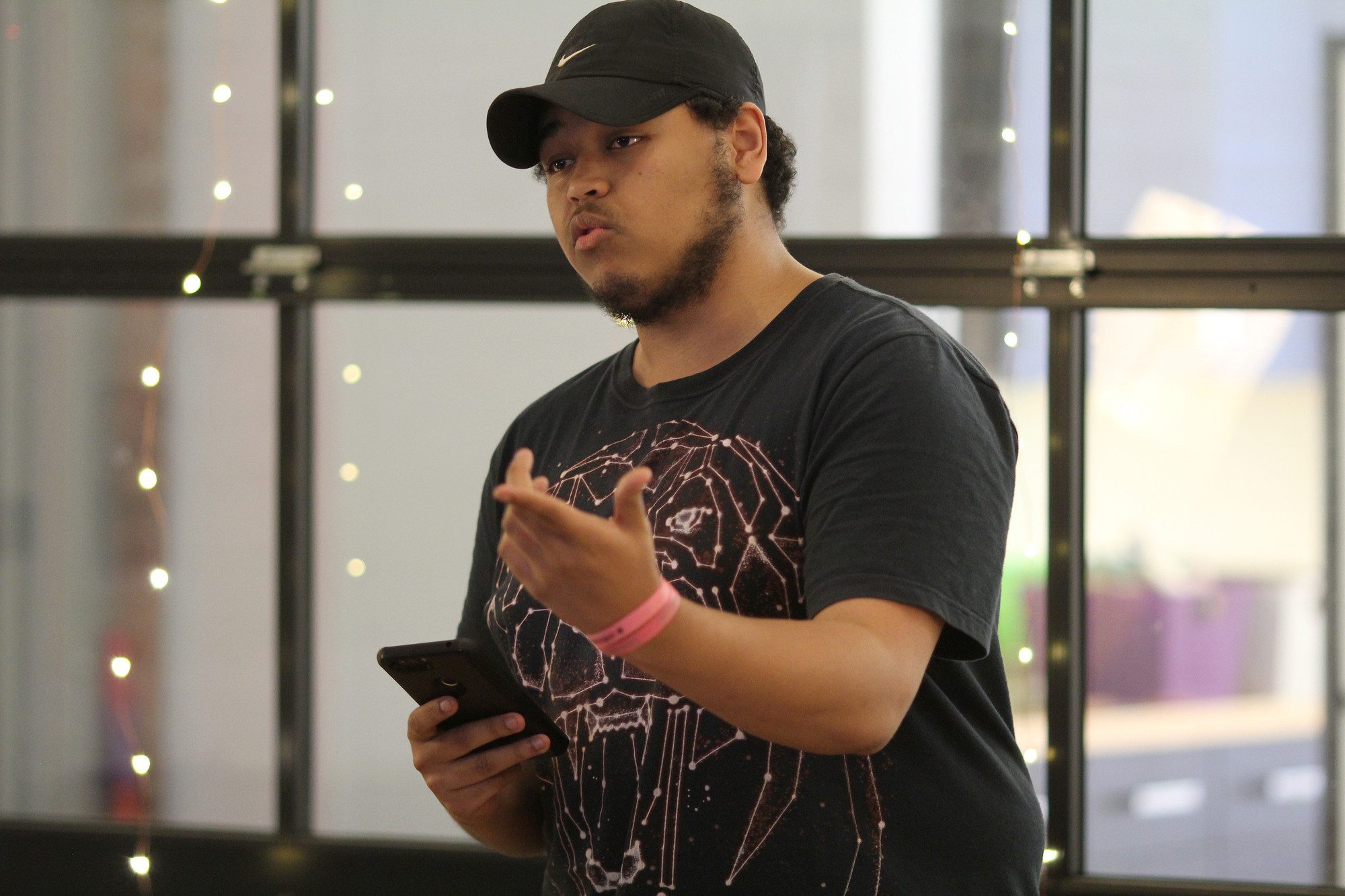LYNN — An event dedicated to RAW students turned into an evening of shared written emotions from attending members of the community.
Students from Speak UP, the organization’s summer spoken word program, performed their poems in a crowded room that exuded a comfortable ambiance. With cushioned couches and hanging lights, the room became a safe space for student performers and the audience.
“It’s crucial for us to make space to respond to what is going on in the world around us and to speak our truths and apply our voices with intention,” said Alex Norby, one of RAW’s art therapists.
Norby planned the event with Gladys Hidalgo, a teaching artist and RAW alumna, and Daiana (Dexter) Garcia, a guest teaching artist. The students’ poetry shared their feelings about inclusivity and community and their frustrations about developmental changes throughout Lynn and how they’re affecting families.
The student performers included Noel Pichardo, Kristen Fonseca, Kayla Cerda, and Mackenzie Urbano. Pichardo’s first poem expressed his resentments toward the many growing developments in the city and the fear he holds of one day not being able to recognize his own neighborhood. Fonseca shared her words of hurt over being subjected to prejudice.
“I am light and nothing can take that away from me,” Fonseca performed.

Pichardo and Fonseca teamed up for a poem together about their interpretations of culture in America, weaving together Spanish and English.
“Our foundation may be cracked but our culture is beautiful,” they read simultaneously.
First-time performer Urbano shared a poem on how within everyone there are our ancestors as well as the ancestors of someone else. Her words blurred the lines of prejudice against ethnic or racial backgrounds.
“I am the water of my ancestors, I am the water of your ancestors, I am the tides of those to come,” Urbano performed.
Cerda’s poem was an ode to her mother and their Hispanic heritage, claiming people in the past have defined them by the color of their skin. She said her mother doesn’t blend into the melting pot of this country, rather she’s the one stirring it.
The audience was vocal throughout each of the performances, applauding each student. About 10 people, who came just to listen, felt inspired enough to get up and share their own words. Will from Free Humanity, one of the muralists participating in the Beyond Walls festival, read a poem he wrote after a bad break-up.
Hannah, a RAW student who participates in a separate program, shared two of her poems. They expressed her feelings regarding her culture, heritage, and the struggles her parents and older brothers faced after fleeing war in their home country. Haja, who works at The Food Project in Lynn, shared words about the effect her school system had on her while she was growing up, calling it a bitter taste of reality.
One young woman, who called herself Natalie, performed a passionate poem about the misinterpretations people have against the Hispanic heritage. She wrote the slam poem after speaking in her native language and a girl in her Spanish class called her a racial slur. Natalie called out the hypocrisy of the girls who say racial slurs but sing along to popular Latin songs, such as “Despacito.”
After other attendees in the room mustered the courage to share their own written feelings, a few of the RAW staff performed their pieces. Alison Miller, an art therapist, expressed her concerns regarding the developments being built across Lynn. She mentioned the many luxurious apartment complexes and how they are casting a cold shadow on the buildings below that were built before them.
“They are welcome as long as they can afford it,” she read, talking about the people who “look like her” and are being drawn into the city along with the pricey developments.
Hidalgo, after being cheered on by her students, got up to perform, too. Her words were a love poem to the country her mother was raised in, called “Even Google Maps struggles to find home.”
“These kids need a space where it’s OK to just be, breathe, say what they need to say, process it in a way that’s safe and healthy, and kind of come to a conclusion with it,” Hidalgo said. “To make that space public, on occasion, is a way to bring in the community and tell other people that this place exists and we’ve got you if you need us.”

